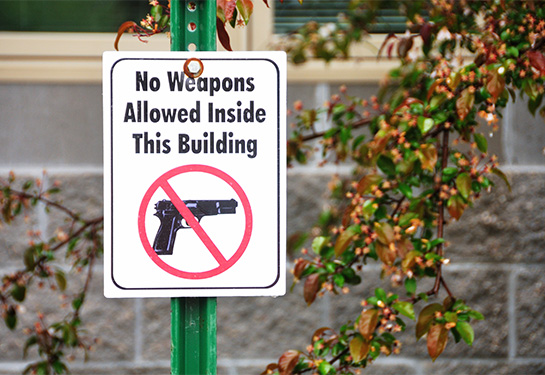Survey finds alarming trend toward political violence
A new report published as a preprint on medRXiv.org from researchers at the UC Davis Violence Prevention Research Program (VPRP) reveals alarming trends in attitudes toward violence, including political violence, in the United States. The survey is the first of its kind to explore the participants’ personal willingness to engage in specific political violence scenarios.
“We expected the findings to be concerning, but these exceeded our worst expectations,” said Garen Wintemute, lead author of the study. Wintemute is an emergency department physician and director of the Violence Prevention Research Program and the California Firearm Violence Research Center at UC Davis.
The survey questions focused on three areas: beliefs regarding democracy and the potential for violence in the United States, beliefs regarding American society and institutions, and support for and willingness to engage in violence, including political violence. Some key findings from those surveyed:
- 67.2% perceive there is “a serious threat to our democracy.”
- 50.1% agree that “in the next several years, there will be civil war in the United States.”
- 42.4% agreed that “having a strong leader for America is more important than having a democracy.”
- 41.2% agreed that “in America, native-born white people are being replaced by immigrants.”
- 18.7% agreed strongly or very strongly that violence or force is needed to “protect American democracy” when “elected leaders will not.”
- 20.5% think that political violence is at least sometimes justifiable “in general.”
Among participants who considered political violence to be at least sometimes justified to achieve a specific objective, 12.2% were willing to commit political violence “to threaten or intimidate a person,” 10.4% “to injure a person,” and 7.1% “to kill a person.”
Among all participants, nearly 1 in 5 thought it was at least somewhat likely that within the next few years, in a situation where political violence was justified, “I will be armed with a gun.” Four percent thought it at least somewhat likely that “I will shoot someone with a gun.”
The researchers conducted the nationwide online survey in English and Spanish from May 13 to June 22. The questions were designed to gauge current attitudes and concerns about violence in the U.S. and willingness to engage in specific political violence scenarios.
A total of 8,620 people who are adult members of the Ipsos Knowledge Panel participated. The sample was designed to represent the general adult population of the United States.
The researchers note that the findings, coupled with prior research, suggest a continuing high level of alienation and a mistrust of American democratic society and its institutions. Substantial minorities of the population endorse violence, including lethal violence, to obtain political objectives.
The researchers believe evidence-based violence prevention efforts should be put in place quickly. They say more research on prevention efforts will be needed.
“It is important to emphasize that these findings also provide firm ground for hope. A large majority of respondents rejected political violence altogether, whether generally or in support of any single specific objective,” Wintemute said.
He points out that a large majority of those who did endorse political violence were unwilling to resort to violence themselves. “The challenge now for those large majorities is to recognize the threat posed by those willing to engage in political violence and respond adequately to it,” Wintemute said.
Additional authors of the study include Sonia Robinson, Andrew Crawford, Julia P. Schleimer, Amy Barnhorst, Vicka Chaplin, Daniel Tancredi, Elizabeth A. Tomsich and Veronica A. Pear from VPRP.
This work was supported by grants from the Joyce Foundation, the California Wellness Foundation, the Heising-Simons Foundation, the California Firearm Violence Research Center and VPRP.




